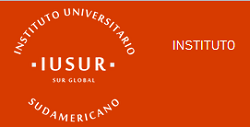Educational Innovation due to Covid-19:
a Comparative Perspective in the Mexican Context
DOI:
https://doi.org/10.25087/resur11a11Keywords:
Covid-19, Pandemic, Educational innovation, Comparative education, PostgraduateAbstract
The health contingency due to Covid-19 has changed the way teaching and learning are conceptualized in the 21st century. This article presents a systematization of educational experiences in two university settings during the pandemic: Universidad Autónoma Metropolitana (Mexico City, Mexico) and Tecnológico de Monterrey (Monterrey, Mexico). Starting from a conceptualization of innovation as a practice of social adaptation (González-Nieto, Fernández-Cárdenas & Reynaga-Peña, 2019) and from community inquiry networks (Garrison, Anderson and Archer, 1999), this article addresses the innovative educational practices of two teachers drawing from a comparative methodological perspective (Manzon, 2018). This research considers the principles of participatory-action research (Ander-Egg, 2003) as a reference to carry out a process of systematization of the university environment (Jara, 2018), with the purpose of informing the successful teaching practices that can be incorporated in other contexts and academic periods. To carry out the analysis, factors such as the funding origin of the university (public / private), its educational level (undergraduate / postgraduate), technological platforms, the topics addressed, the forms of evaluation, the pedagogic strategies, and the educational policy of each educational institution. The results indicate that the comparison in education is a key element to promote collegiate work and educational innovation, that the formation of learning communities has a positive impact on the formation of digital identities and their corresponding academic success, and that the use and interactive design of technological platforms affects the good practices of remote teaching. This study, therefore, responds to the urgent need to rethink educational paradigms, which is why it becomes a starting point to systematize new pedagogical experiences and their corresponding capabilities in emergency contexts, such as that of health contingency by Covid-19.
Downloads
References
Aguiar, B. O., Velázquez, R. M., y Aguiar, J. L. (2019). Innovación docente y empleo de las TIC en la Educación Superior. Revista ESPACIOS, 40(2).
Ander-Egg, E. (2003). Repensando la Investigación-Acción-Participativa. Grupo editorial Lumen Hvmanitas.
Burde, D., Kapit, A., Wahl, R. L., Guven, O., & Skarpeteig, M. I. (2017). Education in Emergencies: A Review of Theory and Research. Review of Educational Research, 87(3), 619–658. https://doi.org/10.3102/0034654316671594.
Dávila, M. (2020). Informe especial: «La educación superior en contextos de emergencia». Revista de Educación Superior del Sur Global, 9-10(2020).
García, C. (2020). Las madres de menores que teletrabajan son las que más estrés soportan en el confinamiento. El País. Recuperado de https://elpais.com/elpais/2020/05/06/mamas_papas/1588747482_017346.html.
Garrison, D. R., Anderson, T., y Archer, W. (2000). Critical Inquiry in a Text-Based Environment: Computer Conferencing in Higher Education. The Internet and Higher Education 2(2-3), 87-105.
González-Nieto, N. A., Fernández-Cárdenas, J. M., y Reynaga-Peña, C. G. (2019). Aprendizaje y práctica de la innovación en la universidad: actores, espacios y comunidades. IE Revista De Investigación Educativa De La REDIECH, 10(19), 239 - 256. https://doi.org/10.33010/ie_rie_rediech.v10i19.716.
Grupo Banco Mundial (2020). Covid-19: Impacto en la Educación y Respuestas de Política Pública. Banco Mundial. Recuperado de https://openknowledge.worldbank.org/bitstream/handle/10986/33696/148198SP.pdf?sequence=6&isAllowed=y.
Jara, O (2018). La sistematización de experiencias: práctica y teoría para otros mundos posibles. CINDE.
Jean-Francois, E. (2020). Influence of Comparative Education on Comparative Adult Education Research and Practice. Hessische Blätter für Volksbildung, 2, 41-54.
Manzon, M. (2018). Origins and traditions in comparative education: challenging some assumptions. Comparative Education, 54(1), 1-9. https://doi.org/10.1080/03050068.2017.1416820.
Neidhöfer (2020). Consecuencias de la pandemia del COVID-19 en las desigualdades sociales en el largo plazo. Programa de las Naciones Unidas para el Desarrollo. Recuperado de https://www.latinamerica.undp.org/content/rblac/es/home/blog/2020/consecuencias-de-la-pandemia-del-covid-19-en-las-desigualdades-s.html.
Organización de Estados Iberoamericanos (2020). A 13 años del Plan Ceibal: su rol en Uruguay, en la región y en tiempos de pandemia, contado por sus hacedores. Recuperado de https://panorama.oei.org.ar/a-13-anos-del-plan-ceibal-su-rol-en-uruguay-en-la-region-y-en-tiempos-de-pandemia-contado-por-sus-hacedores/.
Paredes-Chacín, A. J., Inciarte González, A., y Walles-Peñaloza, D. (2020). Educación superior e investigación en Latinoamérica: Transición al uso de tecnologías digitales por Covid-19. Revista de Ciencias Sociales (RCS), XXVI(3), 98-117.
Plan Ceibal (2020). ARC 360: Uruguay presenta su experiencia en educación durante la pandemia en cumbre internacional. Recuperado de https://www.ceibal.edu.uy/es/articulo/arc-360-uruguay-presenta-su-experiencia-en-educacion-durante-la-pandemia-en-cumbre-internacional.
Presidencia de Uruguay (2020). Plan Ceibal entregó 100.000 dispositivos electrónicos durante la pandemia. Recuperado de https://www.presidencia.gub.uy//comunicacion/comunicacionnoticias/ceibal-folgar-dispositivos-anep-plan.
Reuters Staff (2020). Lockdowns in Europe avoidable, vaccines 'not a silver bullet' - WHO Europe. Reuters. Recuperado de https://www.reuters.com/article/uk-health-coronavirus-who-europe-idUKKBN27Z1B0?edition-redirect=uk.
Santos, B. S. (2010). Descolonizar el saber, reinventar el poder. Trilce Publicaciones.
UNESCO (2020). Covid-19 and Higher Education: Today and tomorrow. Impact analysis, policy responses and recommendations. IESALC-UNESCO.
UNICEF (2020). EDUCACIÓN EN PAUSA: Una generación de niños y niñas en América Latina y el Caribe está perdiendo la escolarización debido al COVID-19. UNICEF, Oficina Regional para América Latina y el Caribe.
Villalpando, I. (2020). De la apertura de escuelas en México. Nexos: Distancia por Tiempos. Blog de Educación. Recuperado de https://educacion.nexos.com.mx/?p=2753.
Walsh, C. E. (2014). Decolonial pedagogies walking and asking. Notes to Paulo Freire from AbyaYala. International Journal of Lifelong Education, 34(1), 1-9. https://doi.org/10.1080/02601370.2014.991522.










